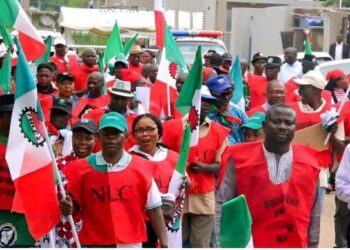The Director General of the Raw Material Research and Development Council (RMRDC) Prof. Hussain Doko Ibrahim, has disclosed that the Council, was found worthy of Anti-Corruption Compliant agency amongst other research institutes as overseen by the Independent Corrupt Practices & Other Related Offences Commission (ICPC) in the country.
The Director General revealed this during the inauguration and induction of RMRDC Anti-Corruption and Transparency Unit (ACTU) Members by the Independent Corrupt Practices & Other Related Offences Commission (ICPC) with the theme: ‘INTEGRITY PAYS’, on Tuesday in Abuja.
“Under my watch as the Director General/CEO of the Raw Materials Research and Development Council, the RMRDC ACTU has recorded significant success in the fight against corruption. In 2023, the Council was adjudged the best Anti-Corruption compliant agency amongst a whole lot of Research Institutes, and among other MDAs with an overall score of 73%.
“Nigeria belongs to all of us and it is time we wage war against corruption to overcome our development challenges. A recent consensus from a just concluded summit showed that Nigeria is in decline in the fight against corruption. This is buttressed by our current ranking on the Corruption Perception Index (CPI) as well as the culture of Impunity around the embezzlement of public resources by political office holders and their civil servant collaborators,” he said.
According to the Director, Industrial Plant Design and Development Department RMRDC Engr. Emmanuel Kwaya who represented the DG said that the fight against corruption in Nigeria requires a paradigm shift and bolder actions to effectively address it.
During his goodwill message, the Chairman ICPC Dr. Musa Adamu Aliyu SAN, who was represented by the Deputy Director System Study and Review Department Baba Gali Rogo urged the Council to empower the committee in order to deliver on its mandate, “which includes periodic sensitization of staff on and against corruption; examination of systems, processes and procedures that are prone to corruption and proffering solutions; developing and reviewing code of ethics for staff and ensuring compliance with same, monitoring budget implementation of the Commission; coordinating the deployment of the Ethics and Integrity Compliance Scorecard (EICS) and undertaking preliminary investigations into complaints/reports received, amongst others.”




